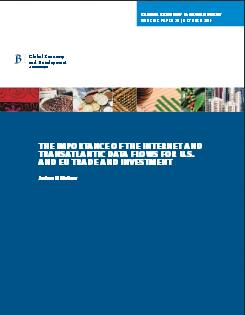Mitchell, B. (2014) “Eurozone battle lines being drawn again with Germany on the other side“, Bill Mitchell Blog: Modern Monetary Theory – Macroeconomic Reality, 27 October. The battlelines between the European Commission and France and Italy over the – Corrective arm – of the Stability and Growth Pact are firming up after the Italian Government publicly released a ‘strictly confidential’ letter from the Vice President of the European Commission …Read More
The Eurozone’s Problems Are Based in Politics
Nixon. S. (2014) “The Eurozone’s Problems Are Based in Politics“, Wall Street Journal, 19 October. Some say the euro crisis is back; others argue that it never really went away. A gloomy forecast from the International Monetary Fund suggesting a 40% chance of a slide back into recession and a flurry of weak data pointing to a faltering recovery, particularly in Germany, have spooked markets. Once again, the eurozone …Read More
The ECB as lender of last resort?
Goodhart, C. & Schoenmaker, D. (2014) “The ECB as lender of last resort?“, VoxEU Organisation, 23 October. As part of the move to a banking union, the largest banks in the Eurozone will soon be supervised by the ECB. This column argues that supervision and the lender of last resort function should be seen as a joint product. After the introduction of the euro, the national central banks continued …Read More
‘Mensch tracht, und Gott lacht’ – what’s the best guidance on monetary policy?
Miles, D. (2014) “‘Mensch tracht, und Gott lacht’ – what’s the best guidance on monetary policy?“, VoxEU Organisation, 22 October. Many central banks embrace forward guidance by announcing expected interest rate paths. But how likely it is that actual rates will be close to expected ones? This column argues that quantifying such uncertainty poses great difficulties. Precise probability statements in a world of uncertainty (not just risk) can be …Read More
Europe’s Original Sin and the Dangers of Doing Good
CFI (2014) “Europe’s Original Sin and the Dangers of Doing Good“, Capital Finance International (cfi.co), 02 October. Carlos Rangel, the Venezuelan diplomat and essayist, once pointedly remarked that western nations often send their failed politicians – the dreamers, utopians, and other ineffectual romantics – to far-off places where they can do no harm other than to their host countries. Mr Rangel (1929-1988) deplored the lack of pragmatism and structure …Read More
The Importance of the Internet and Transatlantic Data Flows for US and EU Trade and Investment
Meltzer, P. J. (2014) “The Importance of the Internet and Transatlantic Data Flows for US and EU Trade and Investment“, Global Economy & Development – Brookings Institute, Working Paper 79, October 2014. The most globally significant bilateral trade and investment relationship is between the US and the EU An increasing amount of this economic relationship is underpinned by cross-border flows of data. Cross-border data flows between the US and …Read More
Two years after Mario Draghi’s ‘whatever it takes’ moment, the Eurozone is once again staring into the abyss
Hancké, B. (2014) “Two years after Mario Draghi’s ‘whatever it takes’ moment, the Eurozone is once again staring into the abyss“, LSE EUROPP, 21 October. Growth in the Eurozone has declined significantly over recent months, raising fears that Europe could be heading toward another economic crisis. Bob Hancké writes on what it would take to generate growth in Eurozone states. He argues that the best – and possibly only …Read More
Regulating Capital Flows at Both Ends: Does it Work?
Ghosh, R. A., Qureshi Saeed, M. & Sugawara, N. (2014) “Regulating Capital Flows at Both Ends: Does it Work?“, IMF Publications, Working Paper 14/188, 17 October. This paper examines whether cross-border capital flows can be regulated by imposing capital account restrictions (CARs) in both source and recipient countries, as was originally advocated by John Maynard Keynes and Harry Dexter White. To this end, we use data on bilateral cross-border …Read More
Making regulatory agencies independent is not always a recipe for better decision-making
Jordana, J. & Rosas, G. (2014) “Making regulatory agencies independent is not always a recipe for better decision-making“, LSE EUROPP, 16 October. The principle of making certain bodies independent from government, such as regulatory agencies or central banks, has become popular in a number of contexts over recent decades. As Jacint Jordana and Guillermo Rosas write, the basic assumption underpinning the principle is that electoral pressures can have a …Read More
Why We Must Break Up the Financial Herd
Persaud, D. A. (2014) “Why We Must Break Up the Financial Herd“, Peterson Institute for International Economics – Article in QFinance, 16 October. Background Memories are short. But those in finance are even shorter. Before the credit crunch began in 2007, policymakers in advanced economies were flirting with the idea that we should just accept that financial crises occur every seven years or so and plan accordingly, as seeking …Read More







